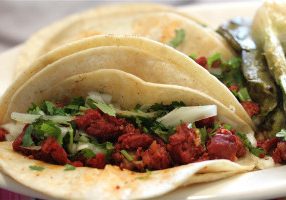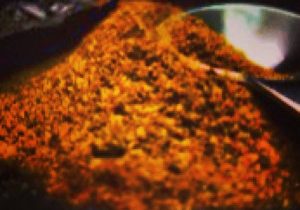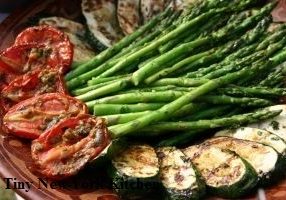
Details
Yields or Serves:
A Few Words About Nuts
Nuts are a delicious and healthful snack that offers a significant amount of healthful fats, vitamin E and fiber in every serving. They are also delicious in salads, stir-fries, in baked goods (whole or ground into flour), tossed with pasta, and made into pesto.
Storing Nuts:
Because of their high fat content, nuts can become rancid quickly if exposed to heat, light or humidity during storage. Raw, unshelled nuts will keep from 6 months to 1 year in a cool, dry place. Shelled nuts will keep for 3 to 4 months in airtight containers at room temperature; they may also be kept in the freezer for up to a year if sufficiently wrapped.
Toasting Nuts: For even more flavor, toasting or roasting nuts deepens their flavor and softens the slight bitterness found in some varieties. Toast them on a rimmed baking sheet (I like to line the baking sheet with parchment paper) in a 350 degree oven or on the stovetop in a dry skillet, shaking the pan frequently. Not all nuts toast in the same amount of time, but all will generally be ready in minutes and can burn quickly, so make sure to watch them carefully. Their color will deepen, and they will smell nicely toasty when done.
Almonds: Sweet almonds are the most widely cultivated nut and are a good source of calcium. Believed to have originated in the Middle East, they are now grown around the world. 1 Pound Shelled Almonds = 3 Cups
Brazil Nuts: Technically not a nut, but a fruit. Brazil nuts come from large trees growing wild in the Amazon rain forest. Similar to coconut in texture, the sweet, rich meat of Brazil nuts can be eaten raw or roasted. 1 Pound Shelled Brazil Nuts = 3 1/4 Cups
Cashews: Indigenous to Brazil, cashews were taken by Portuguese traders to India from where they soon spread throughout Asia and Africa. The husk that encases the nut contains a caustic resin that can only be destroyed by heat, which is why cashews are only sold shelled and roasted. Cashews make wonderfully rich butters and are a satisfying addition to salads and stir-fries. While lower in total fat than most nuts, cashews have a higher ration of saturated fats. 1 Pound Shelled Cashews = 3 1/4 Cups
Chestnuts: The lowest in fat of all nuts, chestnuts are appreciated for their flavorful contribution to soups, stuffing and stew, as well as the holiday tradition of roasting. Boiled or roasted chestnuts have a texture similar to potatoes and can be used as a vegetable side dish. Available fresh only in the autumn, dried chestnuts can be found year-round in many markets. 1 Pound Shelled Chestnuts = 4 Cups
Hazelnuts: Also called filberts, nutrient-dense hazelnuts are the sweetest of all nuts. Bakers and confectioners are especially partial to the rich flavor and dense texture of these nuts. Try adding toasted hazelnuts to green beans or toss in salad. 1 Pound Shelled Hazelnuts = 3 1/2 Cups
Macadamia Nuts: This rich and creamy nut originated in Australia but has become a successful commercial crop in Hawaii and, to a lesser degree, in South Africa and Central America. Macadamias have the highest fat profile of all nuts and are also among the most expensive, so you may wish to reserve them for when something decadent is in order. 1 Pound Shelled Macadamia Nuts = 3 1/2 Cups
Peanuts: Technically a legume and not a nut, peanuts, originated in South America but have become an important crop throughout the tropics and in the southern half of the United States. They have a high protein and fiber content. They are extremely versatile, with many sweet and savory uses, plus great for snacking on, in or out of the shell. 1 Pound Peanuts In The Shell = 2 2/3 Cups Shelled; 1 Pound Shelled Peanuts = 3 Cups
Pecans: Americans are divided over the pronunciation of this nut with roughly half preferring PEE-can and the other half saying pe-KAWN. However you say it, these buttery, slightly bittersweet nuts are a delight, especially when toasted. Famous for their use in pecan pie, they also add flavor and texture to breads, cakes, cookies, candies and ice cream. On the savory side, they’re delicious in salads, pilafs and stuffings. 1 Pound Pecans In The Shell = 2 Cups Shelled; 1 Pound Shelled Pecans = 4 Cups
Pine Nuts: Pine nuts are the edible seeds of pine trees. Known by many names worldwide, including pinon and pignoli, pine nuts are most famous for their role in pesto. Raw, the seeds have a soft texture and a sweet, buttery flavor. A light toasting brings out the flavor and adds a delightful crunch. Because they’re especially susceptible to rancidity, store them in the refrigerator. 1 Pound Shelled Pine Nuts = 3 Cups
Pistachios: Pistachios have beige shells with nuts that range from dull yellow through the range of greens, with the deeper greens being most sought after. Primarily sold in the shell as a snack food, pistachios are as adaptable to recipes as pecans or other nuts. 1 Pound Pistachios In The Shell = 3 1/4 to 4 Cups
Walnuts: Walnuts have come into greater favor recently as a good source of omega-3 fatty acids, a heart-healthy compound. But they’ve always been a welcome addition to brownies, cookies, carrot cake and banana bread. Toasted walnuts are also delicious in salads and pastas. 1 Pound Walnuts In The Shell = 2 Cup Shelled; 1 Pound Shelled Walnuts = 3 1/2 Cups




